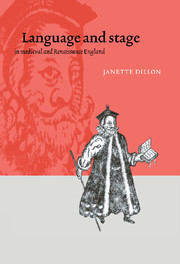8 - Rebels and outcasts
Published online by Cambridge University Press: 15 January 2010
Summary
Those others who needed to be excluded from the definition of England were not all aliens. The imaginary unity of the monarch and her people could only accommodate an idealised commonalty composed of obedient subjects such as the Elizabethan Homilies sought to interpellate. Any subject who did not conform to this model was by definition a threat to the smooth functioning of the polity. The orderly nation naturally seeks to expel any ‘dirt’ that threatens its orderliness. As Mary Douglas argues: ‘Dirt offends against order. Eliminating it is not a negative movement, but a positive effort to organise the environment … In chasing dirt … [we] are positively re-ordering our environment, making it conform to an idea’ (Purity and Danger, p. 2). This work of reordering is very evident in Elizabethan England. A sense of disorder, resulting in a need to strengthen symbolic systems, is particularly visible in the statutes and proclamations of the period, which are preoccupied with reinforcing social distinctions through sumptuary law, controlling or punishing vagrants, witches and conjurers, identifying Catholics and potential traitors to the realm, and restricting free movement from parish to parish for numerous classes of person.
Disorder seems to have reached a peak during the 1590s. ‘Everyone is agreed’, wrote the Venetian ambassador in 1594, ‘that at this juncture England is shaken by religious feuds, by plagues, and other internal troubles’ (Bevington, Tudor Drama, p. 230).
- Type
- Chapter
- Information
- Language and Stage in Medieval and Renaissance England , pp. 188 - 219Publisher: Cambridge University PressPrint publication year: 1998



